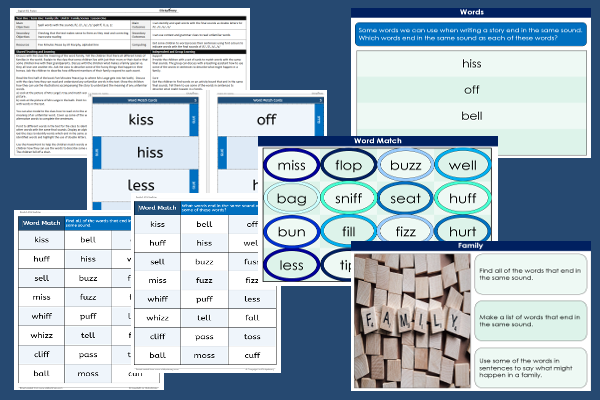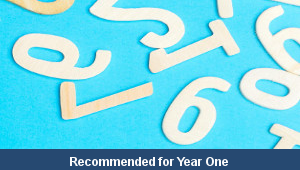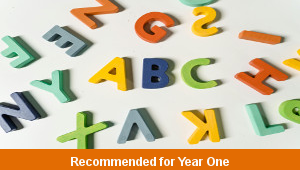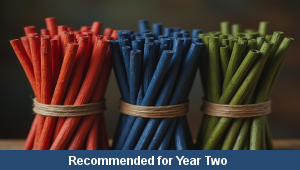Lesson One – Word Match

This English teaching pack for Key Stage One gets the children to identify and match a range of different words that end in the same sound spelt ff, ll, ss, zz to use when describing some of the things that might happen in a family.
The class can practise using some of the words in example sentences to describe things that might happen in a family based on the narrative of a story.
Download this teaching pack including a lesson plan, classroom activities and an interactive presentation to identify and match a range of different words that end in the same sound spelt ff, ll, ss, zz to use when describing some of the things that might happen in a family
Activities in this teaching pack include a set of cards for support ability levels to match and group a range of different words that end in the same sound spelt ff, ll, ss, zz and differentiated worksheets for core and extension ability levels to select and record a range of different words with the same final phoneme sounds.
The interactive presentation gets the children to explore a range of different words that end in the same sound spelt with the word endings of ff, ll, ss, zz.
This lesson is part of an English scheme of work to get the children to practise using descriptive vocabulary to describe settings in stories, identify and spell words with the same endings and select vocabulary to complete sentences. There are teaching activities for shared learning, differentiated worksheets to support independent learning and interactive presentations to introduce concepts and key skills.
-

Counting Twenty
Explore how to model and illustrate ways of counting different numbers of objects and pictures with matching sums to twenty
-

Alphabet Lists
Practise building lists of objects that have been recorded in alphabetical order to match different themes and topics
-

Garden Flowers
Develop and refine skills in representing different types of flowers grown in a garden by using a range of painting techniques
-

Equal Groups
Explore and record how to divide numbers of different groups of things into matching equal groups of two, three and four
